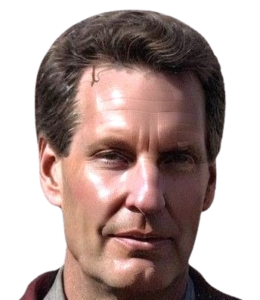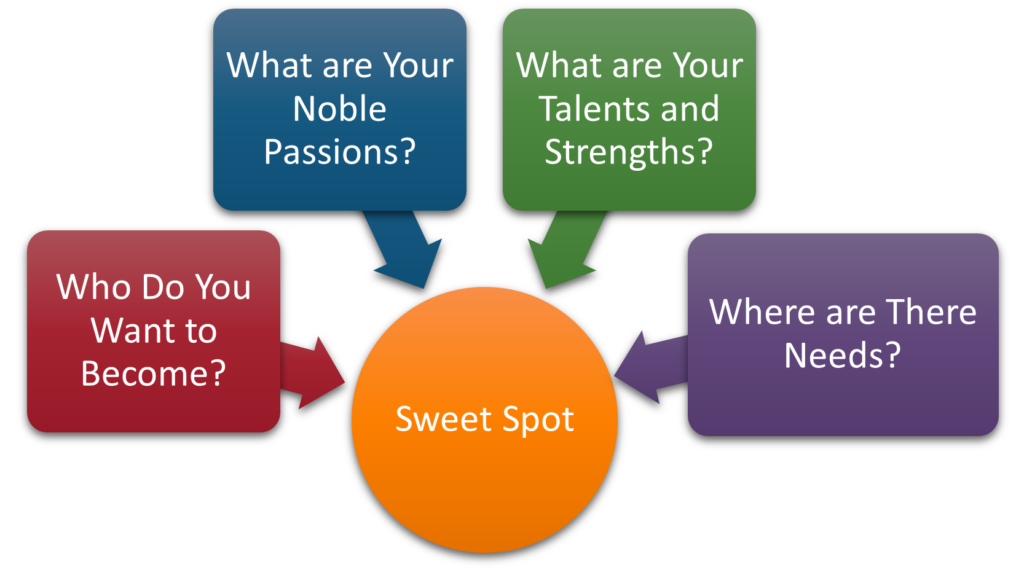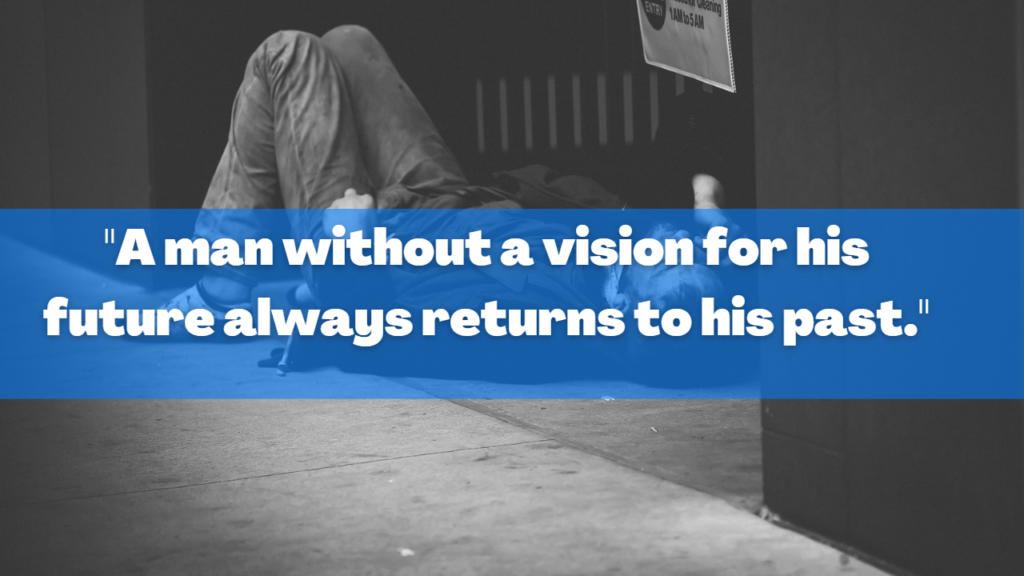How to Overcome Fear and Doubt in Pursuing Your Purpose
I frequently refer to my two favorite Presidents – George Washington and Abraham Lincoln. They deserve our focus and attention – given all they did for us. We can learn powerful lessons from their examples.

They both struggled with tremendous self-doubt and fear. They experienced several trials and challenges and countless failures before they were successful in the pursuit of their purpose. But they learned to manage their self-doubt fear and make critical contributions that shaped the world.
So, how did they succeed? By pursuing with all their heart and might noble purposes that were beyond and greater than themselves.

Emotional Challenges Grow

Greatest Fears

The greatest fears that human have include the:
1. Fear of death. The fear of death is a universal human experience. It is the fear of the unknown and of losing everything we know and love. It is a fear that can be paralyzing, and it can make it difficult to live in the present moment.
2. Fear of failure. The fear of failure is the fear of not measuring up and not being good enough. It is a fear that can hold us back from taking risks and keep us from achieving our goals.
3. Fear of rejection. The fear of rejection is the fear of being unwanted, and the fear of being alone. It is a fear that can make us avoid social situations and make it difficult to form close relationships.
4. Fear of the unknown. The fear of the unknown is the fear of what we don't know, and the fear of the things that we can't control. It is a fear that can make us anxious and stressed and make it difficult to make decisions.
5. Fear of being judged. The fear of being judged is the fear of being criticized, and the fear of being seen as inadequate. It is a fear that can make us self-conscious and make it difficult to be ourselves.
(Notice that fears 2, 3, and 5 all relate to how others perceive us.)
Greatest Doubts

Examples of doubt that people have include:
• My purpose: Do I really have a unique purpose? Am I a nobody? Am I supposed to be a nobody? Can I really make a difference?
• Future: What will happen in the future? Will I be successful and happy?
• Past failures: I have failed. Am I destined to fail? Can I move forward and succeed?
• Low self-esteem: I struggle to believe in myself. I don’t feel people believe in me.
• Connection/love: I don’t know if others respect and love me. I don’t feel I belong.
• Comparison: Am I below or worse than others?
• Appearance: Am I attractive? Do I look good enough to fit in or be accepted?
• Trauma/Abuse: Am I worthy? Am I loved?
(Notice that several of these doubts relate to how we are perceived by others.)
How can we overcome fear and doubt?
Object Vs. Agent Mindset

We have been taught to believe that we are objects. In other words, it has been reinforced throughout our lives to believe that we are simple byproducts of our genes and our environment.
We are not objects. We do not have to be helpless victims of circumstances. Most importantly, we do not have to be prisoners of destructive thoughts and emotional patterns.
As agents, we have choices and responsibilities. Our futures aren’t dictated. Dictating creates negative emotions and results.
We can choose and work towards our desired future. We can choose happiness. Instead of working against us, we can develop the thought and emotion patterns and habits that strengthen us. We can make wise decisions. We can be persistent in pursuing ours goals.
It is not only our choice, but our responsibility to stand on our own two feet and eliminate a victim or entitlement mindset that can easily creep in.
Five Keys to Overcome Fear and Doubt in
Pursuing Your Purpose
1. Choose to Master Your Emotions and Mindset
2. Choose to Discover Your Sweet Spot and Purpose
3. Choose to Believe in Your Potential and Purpose
4. Choose to Develop a Vision and Plan
5. Choose to Take Action and Persist
1. Choose to Master Your Emotions and Mindset
Emotions and Mindset
One of the biggest deterrents or barriers to your success is the emotions and mindset you have about yourself. Our emotions are our feelings. Our mindset is what and how we think about ourselves. It is our thoughts and emotions that shape our perception of ourselves and our capabilities.
According to a study by the American Psychological Association, 85% of people struggle with self-doubt and fear at some point in their lives. A study by the University of California, Berkeley found that only 10% of people have a truly positive self-image.
On the positive side, top performers believe that 80-90% of success comes from having the right mindset, and 10-20% comes from skills and abilities.
Ninety percent (90%) of top performers score high on emotional intelligence – which is the ability to identify, understand, and manage one’s emotions. It also includes the ability to understand and respond appropriately to the emotions of others.
So, the most important skill we can learn is how to master the thoughts, emotions, and mindset we have about ourselves and others.
Negative Bias Can Turn into Our Prison

There are many studies that show that we have a negative bias in life. We pay more attention to negative information about ourselves and others. Negative emotions are more intense than positive ones. That means that negative events are more likely to capture our attention and stay with us longer.
Our negative bias can lead to several negative consequences, including anxiety, stress, depression, relationship problems, problems at work, and self-destructive behaviors. This is because we are more likely to focus on the negative aspects of our lives, and we may distort our thoughts to see the worst possible outcomes. These negative thoughts can make us feel bad about ourselves and others, and they can hurt our emotional health.
We frequently tell ourselves negative stories about ourselves that end up putting us in a very real prison that traps us and keeps us from reaching our potential.
Comparisons Create Misery and Frustration

Comparing ourselves to others is the source of many of our destructive thoughts. Most people make the decisions they make because they want others to approve of them.
We can spend our lives trying to be the perfect person in the eyes of others. When we are too consumed by what others think, we hurt our emotional and mental health. We end up living a miserable and frustrating life.
We need to stop comparing ourselves to others. We torture ourselves needlessly when we compare. Furthermore, we falsely judge our self-worth by what we do or don’t have and by the opinions of others.
How Can We Examine Our Emotions
and Develop Mastery?
A. In the Heat of the Moment, Identify Your Emotions and Don’t Just React
When we are in the middle of feeling stress, anxiety, irritation, hurt, sadness, embarrassment, disappointment, insecurity, and other negative emotions – it is hard to not become overwhelmed to react. Our temptation is to let it all out. Too often, that leads to deep regret and compounds the problem.
Many experts suggest that in the moment of our pain, instead of reacting, we focus on calming ourselves. We can do this by immediately focusing on relaxation techniques (e.g., prayer, deep breathing, visualization, meditation, and practice mindfulness) that will best help us. This creates space and time for us to examine our thoughts and emotions.
As much as we don’t want to admit it, often our thinking patterns are inaccurate. In the heat of the moment, it is easy to take things personally, assume the worst, jump to conclusions, not understand the situation, and so on.
When we are calm, we can determine a better course moving forward.
Too often, we stew over things. When we ruminate, we can often make things worse by increasing our stress levels and negative emotions. Again, we need to examine our thoughts and emotions and seek the best course of action.
Each time we do these, we are developing mastery over our emotions.
B. Keep an Emotions/Mindset Journal

Most of us have hurtful or less-than-ideal thought patterns and emotions. Most struggle to have a positive perspective and mindset about themselves. How do you break those habits?
A powerful tool is an emotions/mindset journal. This helps you to identify your emotions and mindset and reflect on them.
In this journal, you record the emotion you felt, the situation you were in, and the actions you took because of the emotion. You can also ponder these feelings and situations and then write down your thoughts. In this journal, also record your mindset – or the feelings and perspectives you have about yourself.
As you record your emotions and mindset, look for patterns and trends. Moreover, look for ways to improve and strengthen yourself.
Track your efforts to improve and celebrate your successes.
C. Define Your Desired Empowering Beliefs and Review and Visualize Them Daily

Define your desired empowering beliefs. Your empowering beliefs are the positive beliefs you desire to have about yourself and your capabilities. Review these beliefs each day. Visualize that those beliefs are ingrained and that you are achieving your purpose, vision, and goals.
Remember that each time you review and visualize your empowered beliefs, you are building your emotional and mindset muscles and becoming stronger and stronger.
Remember that Choosing to Believe in Yourself Isn’t an Event
Choosing to believe in yourself isn’t an event. It is a process. If you want to get stronger and fitter, you can’t just get excited at the beginning of a new year, give it a go, and then give up. That pattern leads to failure and a loss of confidence. As you work on strengthening your muscles or building your endurance, it takes regular effort. And then something magical happens as you continue your efforts. Your body begins to transform, and you progress. That motivates you to continue until it becomes a habit you look forward to.
2. Choose to Discover Your Sweet Spot and Purpose
Nothing motivates you more than focusing on something each day that aligns with your sweet spot and gives you a deep sense of purpose.
When you focus and pursue a noble purpose, you are motivated out of compassion for others to develop the right kind of self-esteem and confidence you need to contribute to others and in turn reach your potential. You are also more inclined to remain humble and to be a servant teacher and leader.
Research studies demonstrate what you already know. When you have a strong sense of purpose, you stay motivated and are more resilient, you experience greater academic, career, entrepreneurial, and financial success, your relationships are stronger, you are healthier, and you enjoy a longer life.
To help you find your purpose in your life and work, it is extremely helpful to begin by discovering your sweet spot. Your sweet spot is where you uniquely can make the greatest difference and find the greatest joy.
I cover this in other videos, but in short, I define your sweet spot as the intersection between who you want to become, what your noble passions are, what your natural talents and strengths are, and where there are needs in society or the marketplace.

3. Choose to Believe in Your Potential and Purpose
When you focus on a purpose of compassion, it isn’t selfish of you to choose to believe in yourself. It is one of the most important ways to love and honor God and others.
When you develop the right kind of belief in yourself, you deeply inspire others through your words and example, and they in turn do the same for others.
Don’t limit yourself, and don’t let others convince you that you are limited in what you can do. Believe in yourself and then live to reach your possibilities.
4. Choose to Develop a Vision and Plan

"All successful people have a goal. No one can get anywhere unless he knows where he wants to go and what he wants to be or do." - Norman Vincent Peale
So, how can choose to believe in yourself and build upon that daily? Here are some statistics that offer powerful insights:
So, the top way is to use a personal planning system that helps you to set and visualize daily your vision, create goals (especially SMART ones), develop action plans, track your progress, and provide progress reports to a friend or coach.
5. Choose to Take Action and Persist
Taking action and being persistent are key ingredients to achieving success because they help us turn our dreams and goals into reality. Here are some reasons why:

